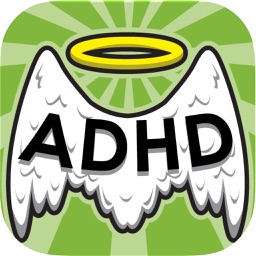Attention-Deficit/Hyperactivity Disorder (ADHD) is a prevalent neurodevelopmental condition that affects millions of individuals worldwide. Characterized by symptoms such as inattention, hyperactivity, and impulsivity, ADHD can significantly impact various aspects of life, including academic performance, occupational functioning, and interpersonal relationships. While medication is often prescribed to manage ADHD symptoms, behavioral therapy has emerged as a highly effective complementary treatment. This article explores the benefits of behavioral therapy for individuals with ADHD, highlighting how it can enhance functioning and overall quality of life.
Understanding Behavioral Therapy
Behavioral therapy is a broad term that encompasses various approaches aimed at modifying maladaptive behaviors and reinforcing desirable ones. For ADHD, this therapy typically focuses on teaching individuals strategies to manage their symptoms and improve their daily functioning. Key components of behavioral therapy for ADHD include cognitive-behavioral techniques, organizational skills training, and parent training.
Cognitive-Behavioral Therapy (CBT):
This approach helps individuals recognize and alter negative thought patterns and behaviors that contribute to their difficulties. CBT for symptoms of ADHD often involves setting specific, achievable goals, breaking tasks into manageable steps, and developing coping strategies.
Organizational Skills Training:
This component focuses on teaching individuals strategies to enhance their organizational abilities. Techniques may include time management, prioritization, and creating structured routines.
Parent Training:
Parents play a crucial role in the behavioral therapy process. Training equips parents with strategies to support their child’s behavior management at home, including implementing consistent discipline and reinforcement techniques.
Benefits of Behavioral Therapy for ADHD
Improved Behavioral Regulation
One of the most significant benefits of behavioral therapy for ADHD is improved behavioral regulation. Individuals with ADHD often struggle with impulsivity and difficulty maintaining focus. Behavioral therapy provides practical strategies to manage these symptoms, such as self-monitoring techniques and reinforcement of positive behaviors. Through consistent practice and feedback, individuals learn to control their impulses and improve their ability to focus on tasks.
Enhanced Organizational Skills
Organizational challenges are a common struggle for those with ADHD. Behavioral therapy addresses these challenges by teaching skills such as time management, prioritization, and effective planning. For example, individuals may learn to use calendars, to-do lists, and reminders to keep track of responsibilities and deadlines. These skills help reduce procrastination and enhance overall productivity, both academically and professionally.
Increased Self-Esteem and Confidence
Many individuals with ADHD experience feelings of frustration and inadequacy due to their difficulties in managing symptoms. Behavioral therapy can foster a sense of accomplishment and self-efficacy by helping individuals set and achieve realistic goals. As individuals experience success in managing their symptoms and achieving their goals, their self-esteem and confidence improve.
Improved Academic and Occupational Performance
Behavioral therapy can lead to significant improvements in academic and occupational settings. By developing effective organizational and time management skills, individuals with ADHD are better equipped to meet academic deadlines, complete assignments, and perform well in the workplace. Enhanced behavioral regulation also contributes to better interpersonal relationships with peers and colleagues, further supporting success in these areas.
Reduced Impulsive Behavior
Impulsivity is a hallmark of ADHD and can lead to problematic behaviors such as interrupting others, making hasty decisions, and engaging in risky activities. Behavioral therapy focuses on techniques to increase self-control and reduce impulsive actions. For instance, individuals may learn to pause and think before acting, use coping strategies to manage urges, and develop problem-solving skills to handle challenging situations more thoughtfully.
Positive Impact on Relationships
ADHD can strain relationships due to difficulties with communication, organization, and follow-through. Behavioral therapy helps individuals develop better communication skills and strategies for managing their symptoms in social settings. By improving self-regulation and organizational skills, individuals are more likely to fulfill commitments and engage in meaningful interactions with others, leading to healthier and more satisfying relationships.
Support for Parents and Caregivers
Parent training, a component of behavioral therapy, provides caregivers with valuable tools and strategies to support their child with ADHD. Parents learn techniques for managing their child’s behavior, implementing consistent discipline, and reinforcing positive actions. This support not only benefits the child but also reduces parental stress and enhances family dynamics.
Long-Term Skill Development
Behavioral therapy emphasizes the development of practical skills that individuals with ADHD can use throughout their lives. By learning strategies for managing time, organizing tasks, and regulating behavior, individuals build a toolkit that supports their ongoing success and well-being. These skills are applicable in various contexts, including educational settings, the workplace, and personal life.
Customization and Flexibility
Behavioral therapy is highly customizable, allowing therapists to tailor interventions to the specific needs and challenges of each individual. This flexibility ensures that the therapy addresses unique aspects of an individual’s treatment of ADHD, making it a personalized and effective treatment option. Additionally, behavioral therapy can be adapted to suit different age groups, from children to adults, ensuring that individuals receive appropriate support at various stages of life.
Conclusion
Behavioral therapy offers a wealth of benefits for individuals with ADHD, ranging from improved behavioral regulation and organizational skills to enhanced self-esteem and better academic and occupational performance. By providing practical strategies and fostering positive behavior change, behavioral therapy helps individuals manage their symptoms effectively and lead more fulfilling lives. As a complementary treatment to medication, behavioral therapy plays a crucial role in supporting individuals with ADHD and empowering them to reach their full potential. For those seeking a holistic approach to managing ADHD, behavioral therapy represents a valuable and effective option.
